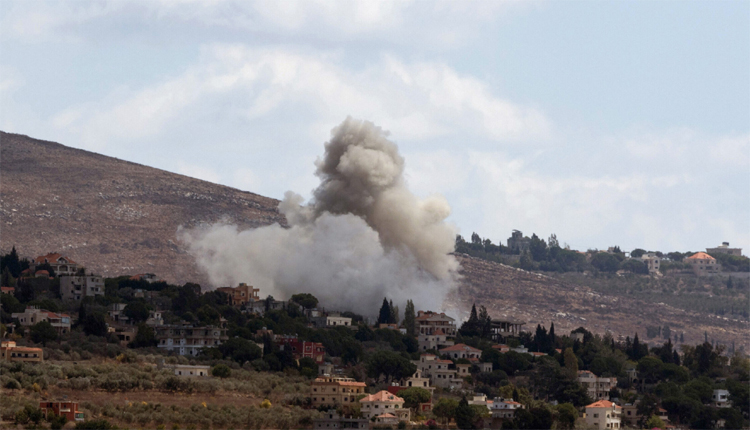Beirut, Lebanon: Israel has intensified its military operations in Lebanon, conducting a series of airstrikes targeting Hezbollah positions after a spate of deadly blasts in the region. The latest wave of violence began on September 17, when explosions from pagers first rocked the area, followed by additional blasts on September 18, which involved walkie-talkies, solar panels, fingerprint devices, and radios. Reports indicate that multiple casualties have resulted from these incidents.
On Thursday, Hezbollah leader Sayyed Hassan Nasrallah delivered a speech addressing the recent explosions when the sound of Israeli fighter jets interrupted him, shaking buildings in Beirut. This marked Nasrallah’s first public address since the series of blasts, during which he condemned the attacks and reaffirmed Hezbollah’s stance.
In a statement following the airstrikes, the Israel Defense Forces (IDF) declared that their operations aimed to dismantle Hezbollah’s military capabilities and infrastructure. “We are currently attacking Hezbollah targets in Lebanon to destroy its terrorist capabilities. For decades, Hezbollah has weaponized civilian homes and used tunnels beneath them as operational bases, turning southern Lebanon into a war zone,” the IDF asserted. They emphasised the necessity of these actions to restore security for residents in northern Israel.
Although Israel has refrained from officially acknowledging its involvement in the pager and walkie-talkie attacks, several security sources have suggested that the operations were carried out by the Israeli intelligence agency, Mossad. In response to the escalating violence, Lebanese authorities have implemented a ban on the use of walkie-talkies and pagers at Beirut airport for departing flights, a precautionary measure following the recent attacks.
As the situation continues to unfold, both local and international observers are closely monitoring the developments, with concerns that the conflict may further escalate in the coming days.



Comments are closed.